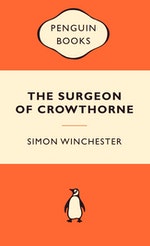
Minor had serious mental health problems. Part of the book describes the history of English dictionaries, which was interesting and part of the book describes the life of Minor, which for me was even more interesting. William Minor was at the forefront of those volunteers. The dictionary took 70 years to complete, and throughout that time the editors of the dictionary relied on an army of volunteers to augment the work being done in the office in Oxford. For about 20 years the surgeon - William Chester Minor - worked intensely, gathering quotations that would help define what different words meant.

But it turns out that this was far from being the case. I presumed the story was largely based on sensationalism, and that in reality he'd probably made a few odd minor submissions at most.

This may be one of the greatest dictionaries in the world, but you only ever want to see the specific words you want to check out, not a bunch of fairly random examples.īefore reading the book I'd heard vaguely about the mentally disturbed surgeon in Broadmoor who contributed to the making of the dictionary. My one small quibble is that each chapter starts with an entry from the Oxford English Dictionary (at the time called The New English Dictionary.) Noooooo. Even so, in spite of Winchester guesstimates and meanderings (or perhaps because of them), I enjoyed it hugely.

Cecily's marvellous review* has pointed out that Simon Winchester had a 'novelistic approach' to writing it, and I think she is absolutely right.


 0 kommentar(er)
0 kommentar(er)
